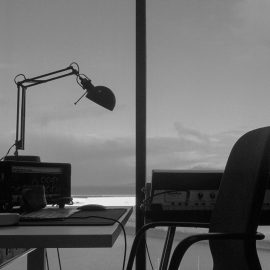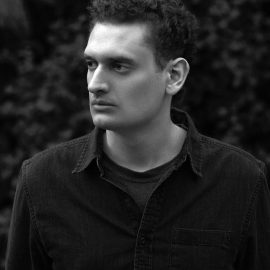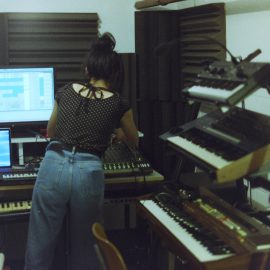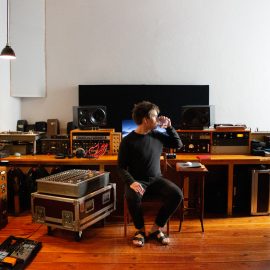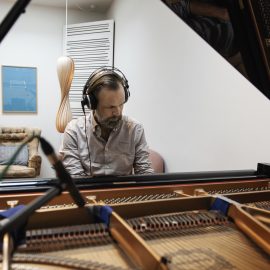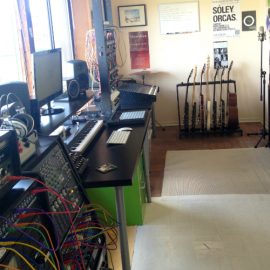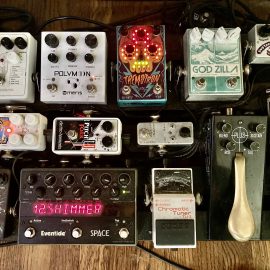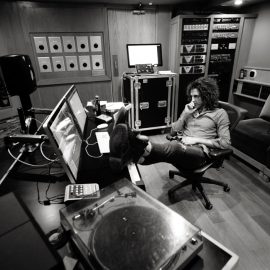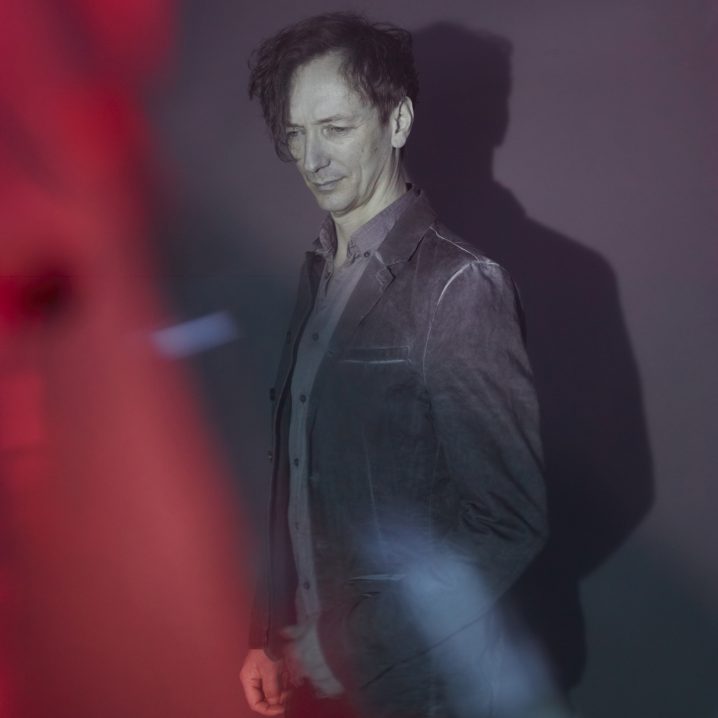
Lets start at the very beginning. Can you tell us how you got involved in composing, and what was your very first piece of gear?
I started composing music in the age of 12. The first piece that I wrote was called ‘Für Emmi’ and it was dedicated to my grandmother Emmi. It was a birthday present for her and I remember I played it on her birthday party as a gift. I already felt there the urge of creating music in all sorts of forms. I was missing physically something when I was unable to work on music. My first piece of gear was a Moog Source Synthesizer which I got as for my religious confirmation.
How many different studio iterations have you gone through, and what does your final setup look like right now?
I think the biggest once are maybe in total 5… I always tried to adjust to rooms that were available and as I hate working without daylight I always was choosing the rooms after their beauty instead of their acoustical qualities. Which has some problems in terms of frequencies but somehow you can work with the problems. I have today a mix of synthesizers, a piano and a harmonium and I work with all those instruments and I record on the computer. When I need a bigger set up I rent a room or I go to the rooms that already sound great.
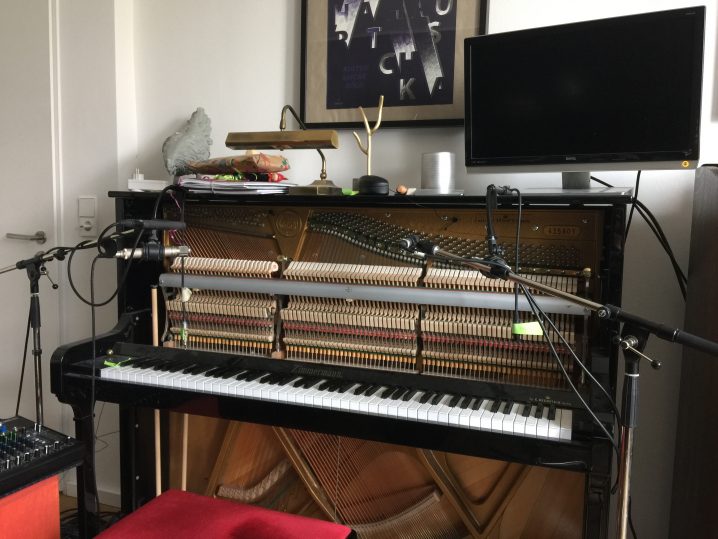
Obviously, besides piano, tell us about your favorite piece of hardware.
My favorite piece is the Moog Sub37 and the Prophet 12. They are awesome synthesizers.
And what about the software that you use for production?
I work with logic x but at the same time I can work with all the other DAW as well. I have them all on my computer just not to get rusty with one system.
Is there a particular piece of gear that you’re just dying to get your hands on and do you think one day you’ll have it?
I would love to have a big modular synthesizer one day.
Can you please share some aspects of sound design in your work?
All the sounds that I am recording are created 99% by the prepared piano. Sometimes I am using a sinus bass sound to get the very low frequencies. I record every piano layer with 6 microphones that are different in distance and I can shape the sound of each take with eq and reverb. I have the impression that my way of recording creates a desensitize that sounds like a full band.
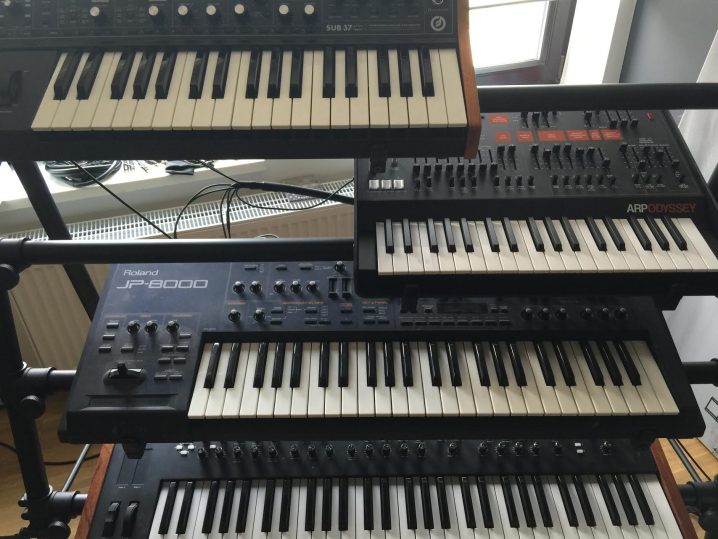
Tell us about some of the gadgets used in preparing the piano?
I am using a lot of wooden sticks and clarinet reeds. I am creating a lot of the textural noise with vibrators on the tuning nails. I am using a lot of art erasers for the plugged sounds.
What are some of the new techniques that you tried out for your soundtrack for The Boy?
For The Boy I worked with my live setup and I created the soundscapes while I was watching the movie. I used a lot of mallets and violin bows on the strings. While I created the sounds I already worked with my left hand on the knobs of the sub-mixer and added effects to the real sound. Later when I recorded a lot of material I invited Daniel Brandl, a great cellist and he added some of the cello sounds. I also recorded 3 hours with the MDR Symphonic Radio Orchestra. I later chopped the recordings in pieces and worked with them like I would use samples.
What does your live setup look like, and what do you bring with you when you travel for an extensive tour?
I bring in all my mics for the piano which are 2 schoeps mk4 ,one neumann km187, I have a Helpinstill Pickup, 2 c-ducers, and 4 countryman for close up micing. I have an effectboard with different delays, like the eventide time factor, eventide space and the Boss RE20 and the rc50 looper by boss.
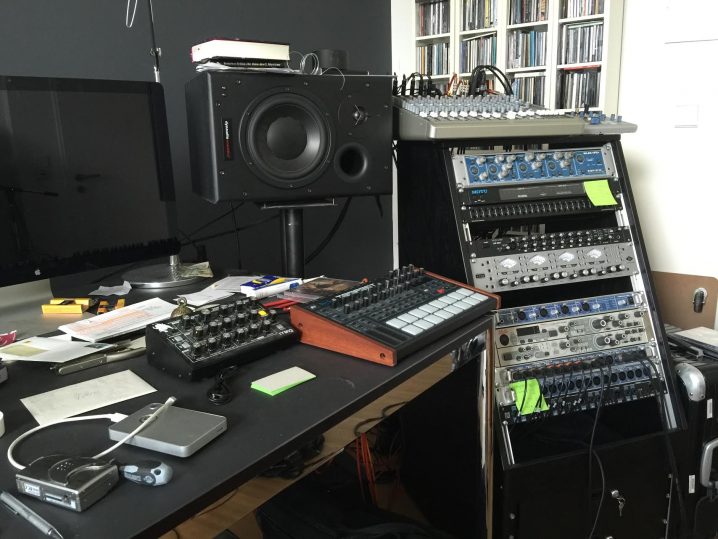
What is the most important environmental aspect of your current workspace and what would be a particular element that you would improve on?
I love to work in spaces that are in the middle of a living area and the room I work in needs high ceilings and daylight. The main problem in the space is because it is a normal rectangle room, that it has some standing bass waves that I had to get rid off by positioning the monitors in a specific way.
What can you tell us about your overall process of composition? How are the ideas born, where do they mature, and when do they finally see the light?
It depends on what I am working on… I am a big fan of starting spontaneous… so in a way I always record something when I have the chance just to capture the mood I am in. Sometimes this is a start of a new piece. When I write for bigger ensembles I use my laptop and I love writing on airplanes as they absurdly enough sometimes the space where no body can reach you.
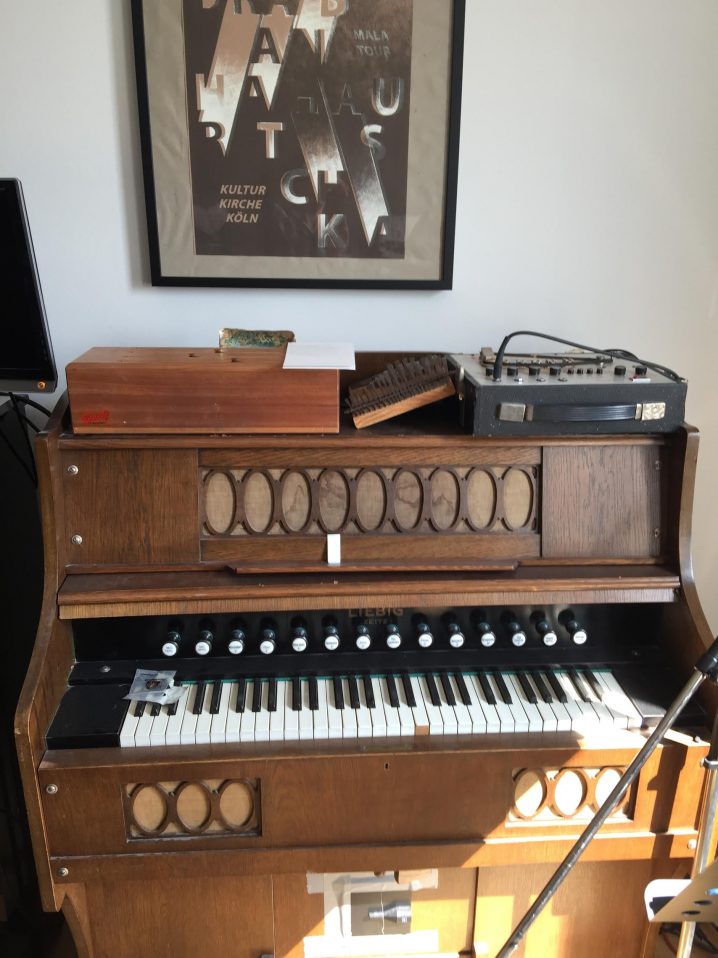
How was your usual approach to composing music different from that when working on a film score?
Of course film scores are always different then my records because I am dealing with already existing content… in comparison to other collaborations a lot the time the film is already shot. I prefer to write some music to the script so that the editor can already work with my music as this helps the strength of the mood I think.
After the piece is complete, how do you audition the results? What are you reactions to hearing your music in a different context, setting, or a sound system?
It is sometimes very impressive as the sound in my studio feels rather intimate and in a big multiplex cinema you feel the power of sound in a different way. I loved actually always doing the final mix in a cinema kind of room. I know in Munich we mixed once a film in this kind of room and it straight away feels like you are mixing for a certain purpose. I am big fan of this.
Do you ever procrastinate? If so, what do you usually find yourself doing during those times?
I like actually sometimes the pressure of urgency but at the same time I hate it. But I think there are always different forms existing as I think that it is very important not to get too focused on urgencies as this can make you stop being careful and attached. I often take breaks, no matter how urgent things are just to get a relaxed feeling towards them and mostly that helps to work much faster.
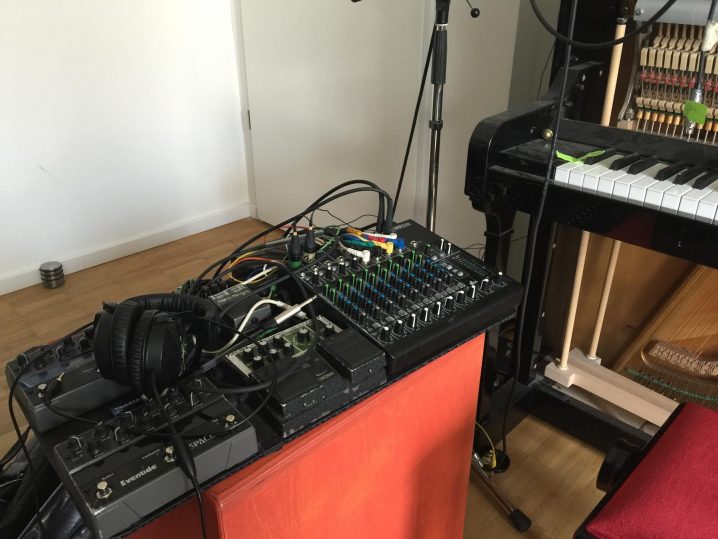
What gets you inspired?
Traveling and nature, my family, good conversations, working as a continuous process of finding ideas.
And finally, what are your thoughts on the state of “electronic music” today?
I like the idea that electronic music is stretching more and more into other areas and that are working with orchestras and that electronic musicians are collaborating with instrumentalist. I think that there is a great diversity and you have in electronic music the freedom to create without any restrictions, which I feel extremely liberating. Of course there are trends and music that is hip but in general I am not a believer in hipster culture as I have seen things come and go and what stays and lasts are the things that have content and that are important. That is sadly enough not always congruent with commercial success… mostly the other way around… a lot of the music that is very breathtaking is not commercial successful and maybe so well-known. Which on the other side means that you can still discover great unknown music. The electronic music field is one of the big areas where you find wonderful discoveries.
